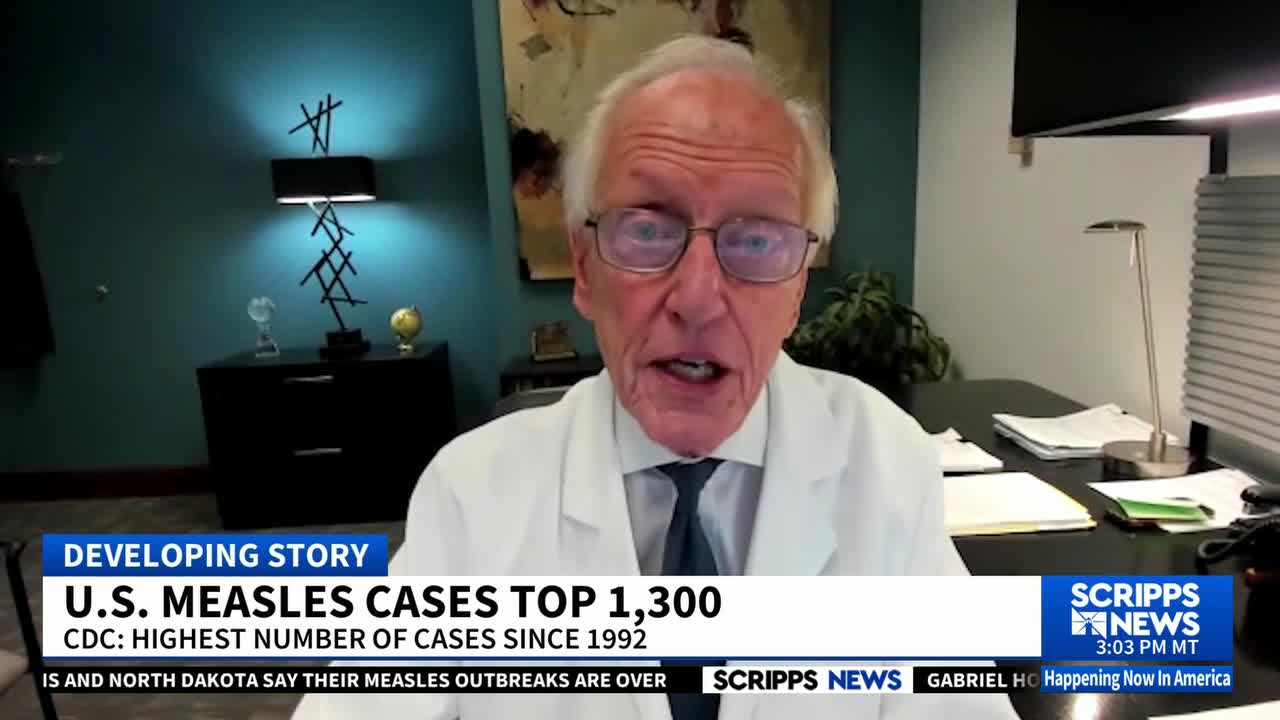GUNNISON COUNTY, Colo. — Visitors at a campground in Almont and patients who visited a hospital in Gunnison earlier this month may have been exposed to measles and should monitor for symptoms for the next three weeks, state health officials said Tuesday.
People who visited the Taylor Park Trading Post in Almont on Saturday, July 12, from 4-7 p.m.; as well as patients who went to Gunnison Valley Health Hospital between 3 p.m. on Wednesday, July 16, and 10 a.m. on Thursday, July 17, may have been exposed to the highly contagious disease, according to the Colorado Department of Health and Environment (CDPHE).
The health alert was issued after officials from both the CDPHE and the Gunnison Department of Health and Human Services confirmed a measles case in an out-of-state resident, state health officials said.
What to do if you believe you were exposed
Anyone who believes they may have been exposed — especially those who have not been vaccinated with the MMR vaccine — should monitor for symptoms for 21 days and avoid public gatherings or high-risk settings, health officials said in the news release.
Symptoms to watch out for include anything from a fever, a cough, a runny nose, and red, watery eyes that develop into a rash that starts on the face and then spreads to the rest of the body about three to five days after symptoms first start. A person with measles is contagious four days before and four days after the rash appears.
While most people recover within two or three weeks after contracting the virus, unvaccinated people run the risk of complications from the disease, including ear infections, seizures, pneumonia, immune amnesia, brain damage and ultimately, death.
Measles only spreads from people who show symptoms; it does not spread from people who aren’t feeling sick, state health officials said.
Unvaccinated people exposed to the virus can get the MMR vaccine 72 hours after exposure (but before symptoms are present) to prevent an infection, according to health officials. Immunoglobulin (IG), if administered within six days of exposure, may also be used in some circumstances, they added.
Denver7 has been closely following confirmed cases of measles in Colorado amid a multi-state outbreak of the virus in the U.S. this year. Check out some related stories in the links below.
- Colorado health officials address use of vitamin A after state reports first case of measles amid US outbreak
- Colorado health officials recognize 'challenging' reporting delays as number of measles cases tick up
- Colorado pediatrician shares how to protect children amid rise in measles cases
“Getting vaccinated is the best way to protect yourself, your family, and your community,” a CDPHE spokesperson said.
While the two-dose series of the MMR vaccine has a 97% efficacy rate against infection, about 3 in every 100 people can still get infected if exposed to the virus, according to the U.S. Centers for Disease Control and Prevention (CDC). Vaccinated individuals will usually develop milder symptoms and are less likely to spread it to others, according to state health officials.
People who got vaccinated against measles before 1968 should talk to their health care provider about possibly getting a booster as the vaccine used before that year wasn't as effective.
Colorado has so far confirmed 16 cases of the highly transmissible virus this year – numbers not seen since 1995, when Colorado reported a total of 26 cases, according to the CDC.
As of Friday, the CDC had confirmed a total of 1,319 measles cases — the worst year since the disease was eliminated 25 years ago. Two children and one adult have died in the current nationwide outbreak. None were vaccinated against measles.





Denver7 is committed to making a difference in our community by standing up for what's right, listening, lending a helping hand and following through on promises. See that work in action, in the videos above.





